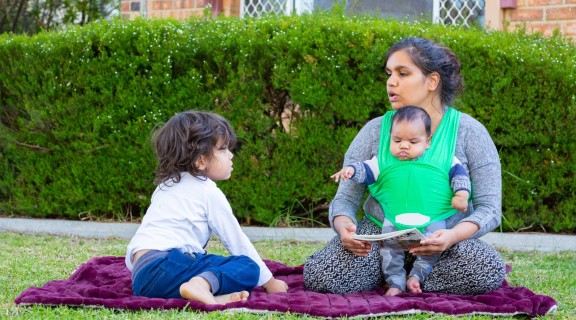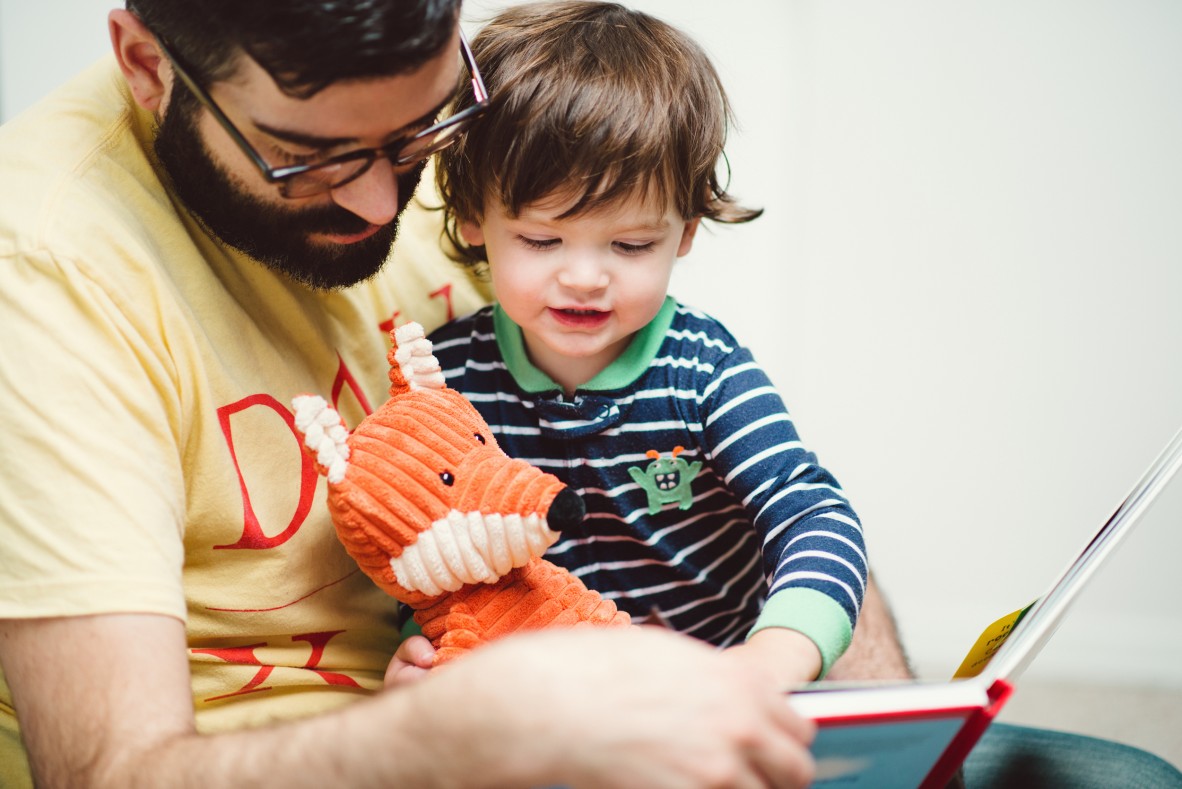
How books can help your child with big emotions
1 April 2020 | State Library of Queensland
Children may be little, but they sure do come with some big feelings. It can be hard to explain that big emotions are a normal and healthy part of their development. That's why books are a really good resource to help children understand what’s happening around them and how they are feeling.
None of us were born knowing how to control big emotions and our children will take a while to learn. This is okay – time is something they have plenty of. In the meantime, the job for us as their parents or caregivers is to nurture their ability to manage their emotional responses in healthy, adaptive ways.
Your child may not understand everything that’s happening currently with the global pandemic. They will hear words they don’t understand, and are very good at sensing when life is a little different and when you may be worried. They will have lots of questions about why they can’t visit the library, see their friends or have to wash their hands for a really long time and more often.
Tips for sharing books and resources
If your child is experiencing big emotions, talk to them in a way they will understand. If you’re discussing illness you might even like to use the e-book Birdie and the Big Sickness by Andrea Baldwin as a way of answering some of their questions. Children’s Health Queensland has a series of these e-books and resources available to families.
When a happy, scary, or frustrating event occurs in a story, pause and look at the picture together. Examine characters’ facial expressions, how they are standing, and what they are doing? Ask, ‘Look at her – how do you think she’s feeling right now?’ or ‘Have you ever felt that way? And if so, when?’ Let your child know how important it is for them to describe their feelings and it’s okay to express and share them with others.

Books can help children to describe and understand tricky emotions.
We live in a constantly changing world, this can be overwhelming at times. Sometimes you are able to shelter your child from so much change, but no matter how hard you try to shield your child, they can start to feel anxious and confused. Here are some tips to help your child cope:
• A little extra attention will go a long way right now
• Do you best to answer all their questions, even if some are repeated
• Keep as much the same as possible especially their routine
• Try and limit the amount of TV or media they are exposed to
• Spend time every day talking, singing, reading and playing
• Introduce songs and games into the routine of washing their hands
More books about feelings you can share together
Below are suggested books which focus on a range of emotions to help your child recognise how are feeling:
• Feelings Book, by Todd Parr
• Ish, by Peter Reynolds
• My Many Coloured Days, by Dr Seuss
• The Grouchy Lady Bug, by Eric Carle
• The Goodbye Book, by Todd Parr
• When Sadness is at Your Door, by Eva Eland
Comments
Your email address will not be published.
We welcome relevant, respectful comments.